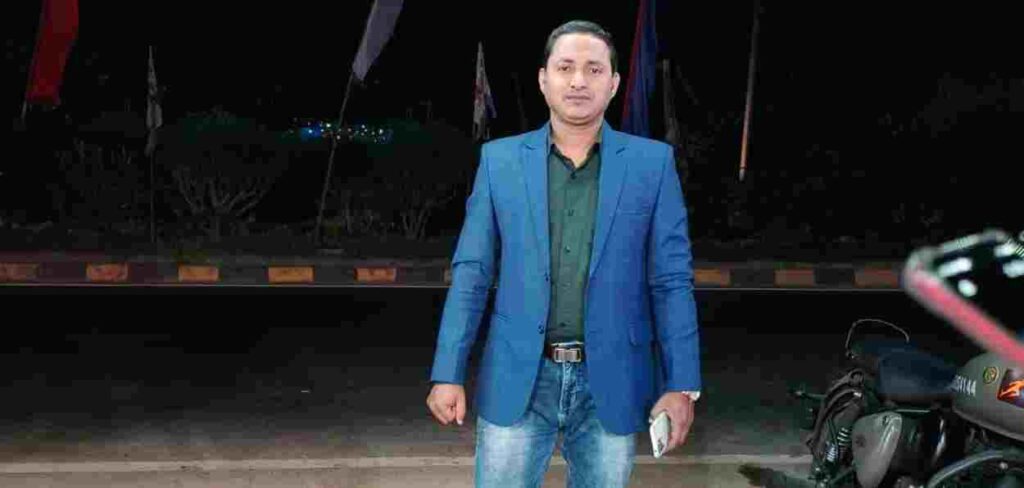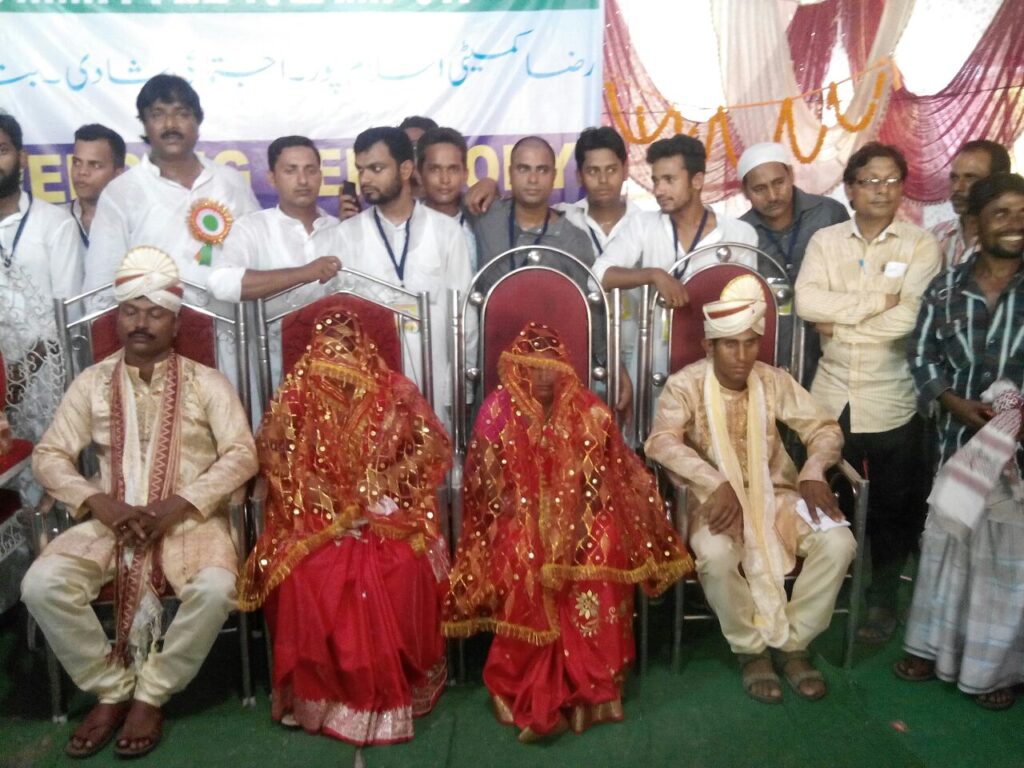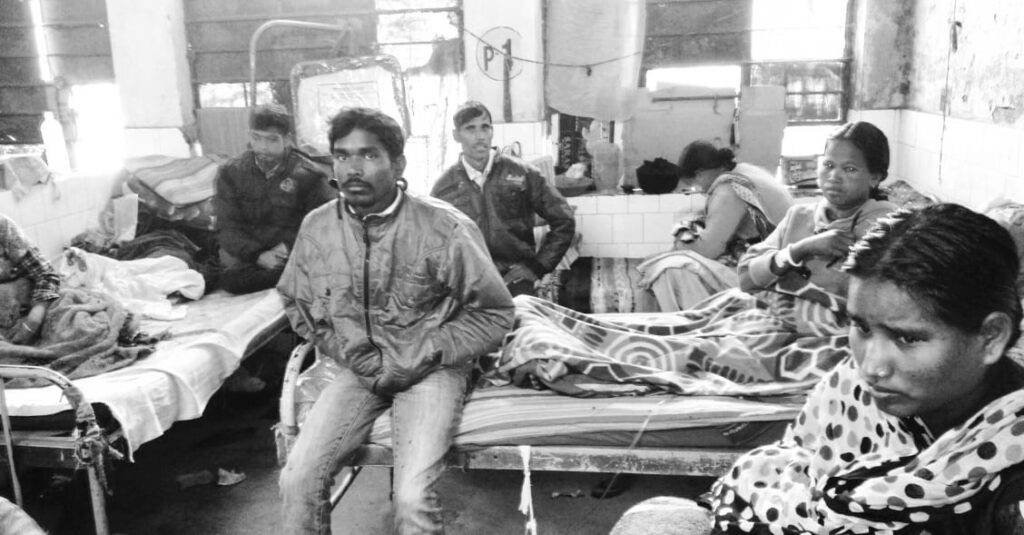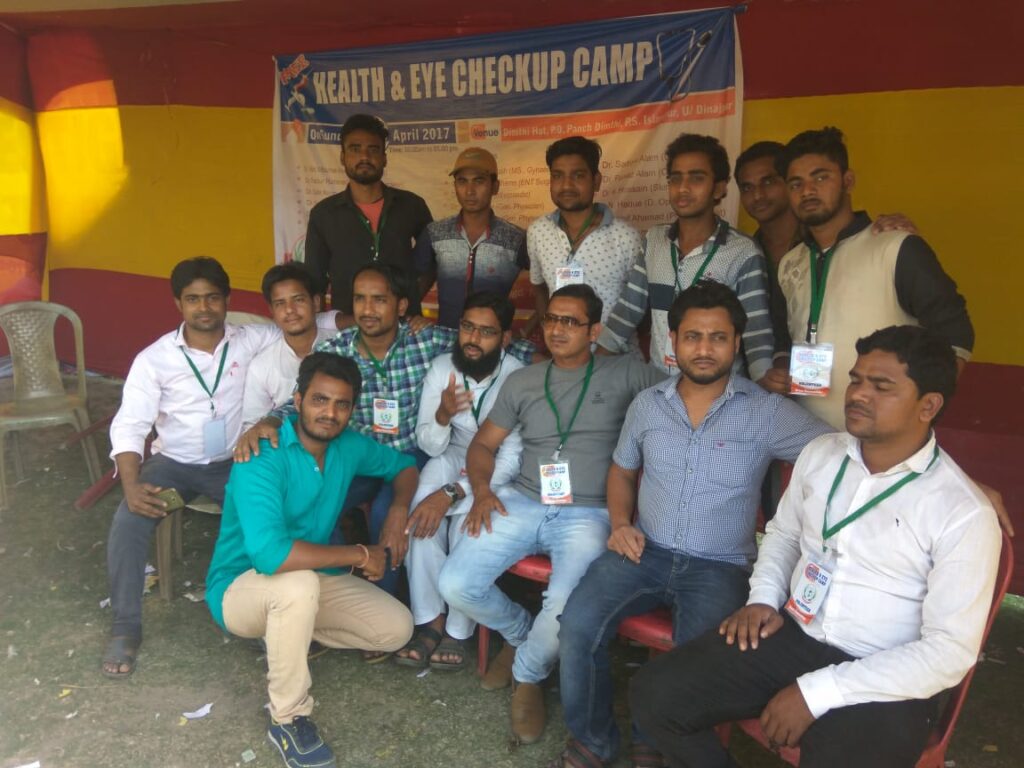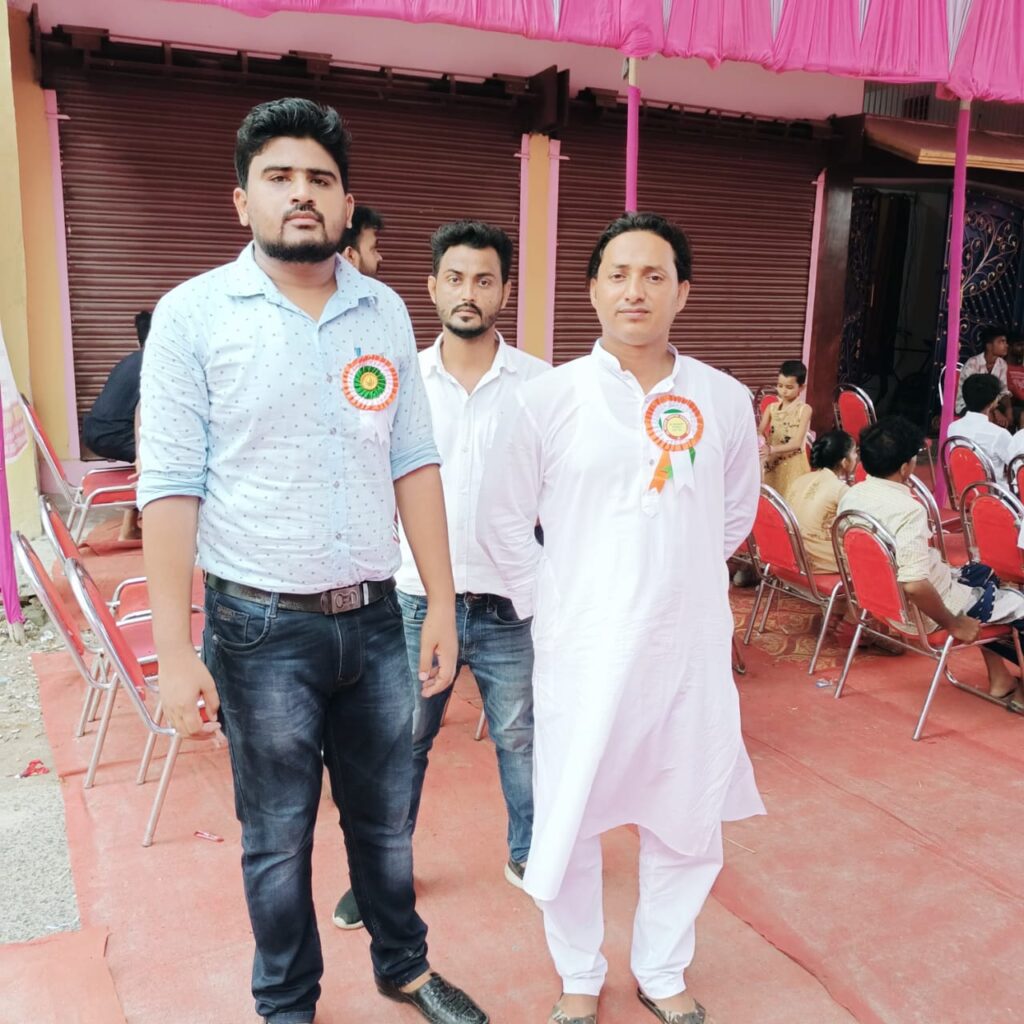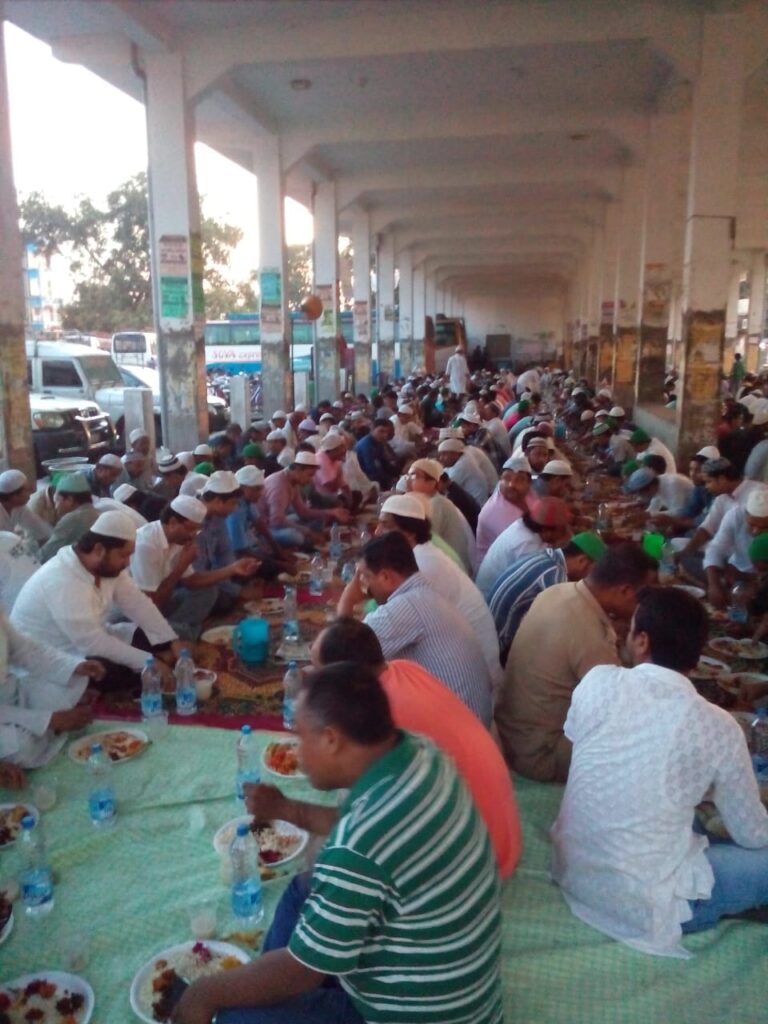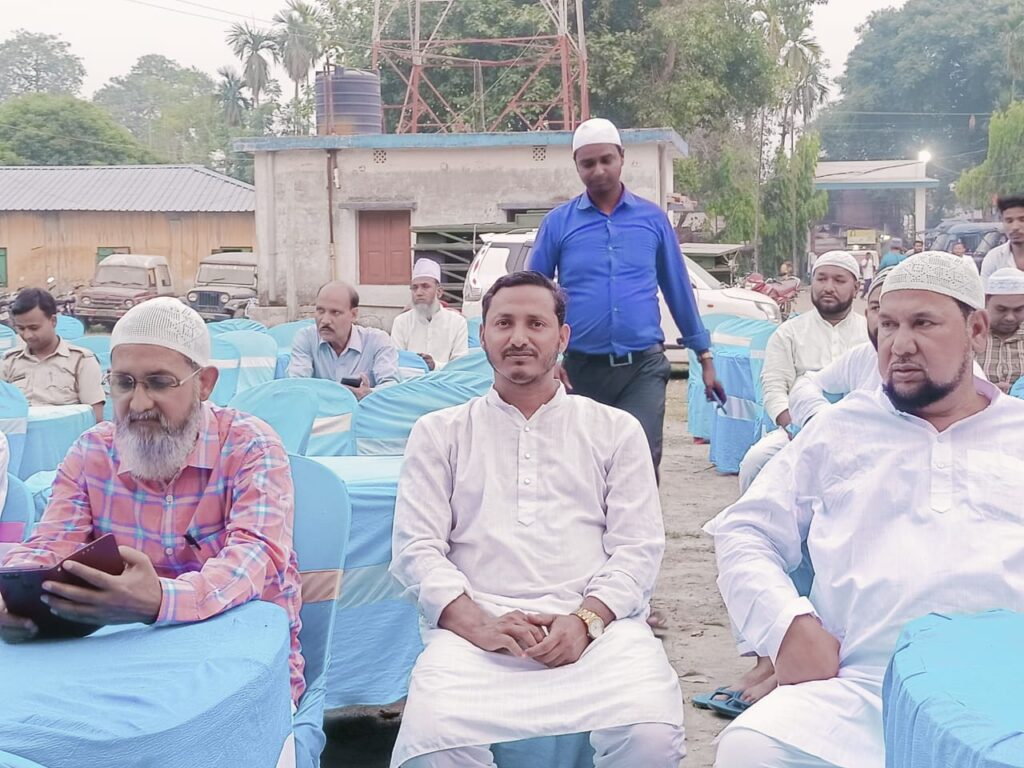Kolkata, WEST BENGAL :
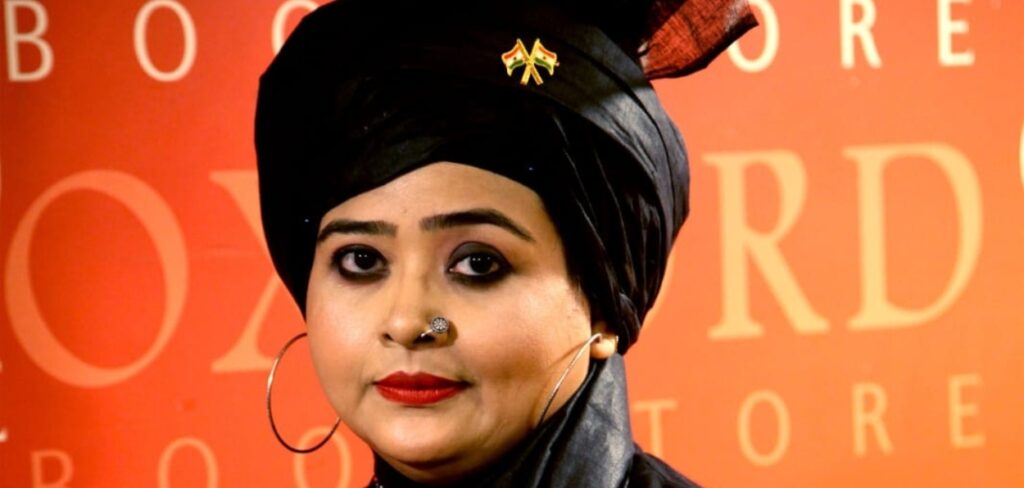
Shagufta Hanaphie
Shagufta Hanaphie’s story is incredible, starting from a child as a shy girl who could barely speak, chronically ill with many complications to the point she would fall unconscious. Yet, at one point in her life, a “magic wand” touched and transformed her. She rose to become an Event Curator, Storyteller, Digital Creator, Author, Womenprenuer, Award Curator, and Philantropist.
She is also the co-founder of Best Friendz Society along with her friend Rajiv, and founder of SHE – Shagufta Hanaphie Events – which is a PR and event boutique, and many other organizations.
A turnaround came during COVID 19 – pandemic when Shagufta along with a team provided food for a village of 400 people in Ernakulam, Kerala.
Post Cyclone Amphan that hit Bengal, she and her team also traveled to places in Sundarbans where they provided food, dry rations, and clothes to the needey persons.
Again, during the Covid-19 pandemic, Best Friendz Society reached Sundarbans.
She started a campaign with her team called Hunger Free Bengal. She coaches people who are emerging with startups and does personal counseling for the lonely, and divorcees, and on occasions, has even match-fixed singles. She works with suicidal people and conducts counseling sessions with young girls and boys.
Titled with many monikers such as Event Organizer, Author, founder and Director, CEO at Teacher’s Excellence Award, Founder Director, Owner of SHE Founder, Director, CEO at Inspiring Women Achievers Awards – IWAA, she tells Awaz-the Voice, “I am not a brand but I want to honour, felicitate people for their outstanding work. While I may not be able to give a formal award, I want to prize people for the recognition for their incredible work and dedication which otherwise gets overshadowed by other giants.”
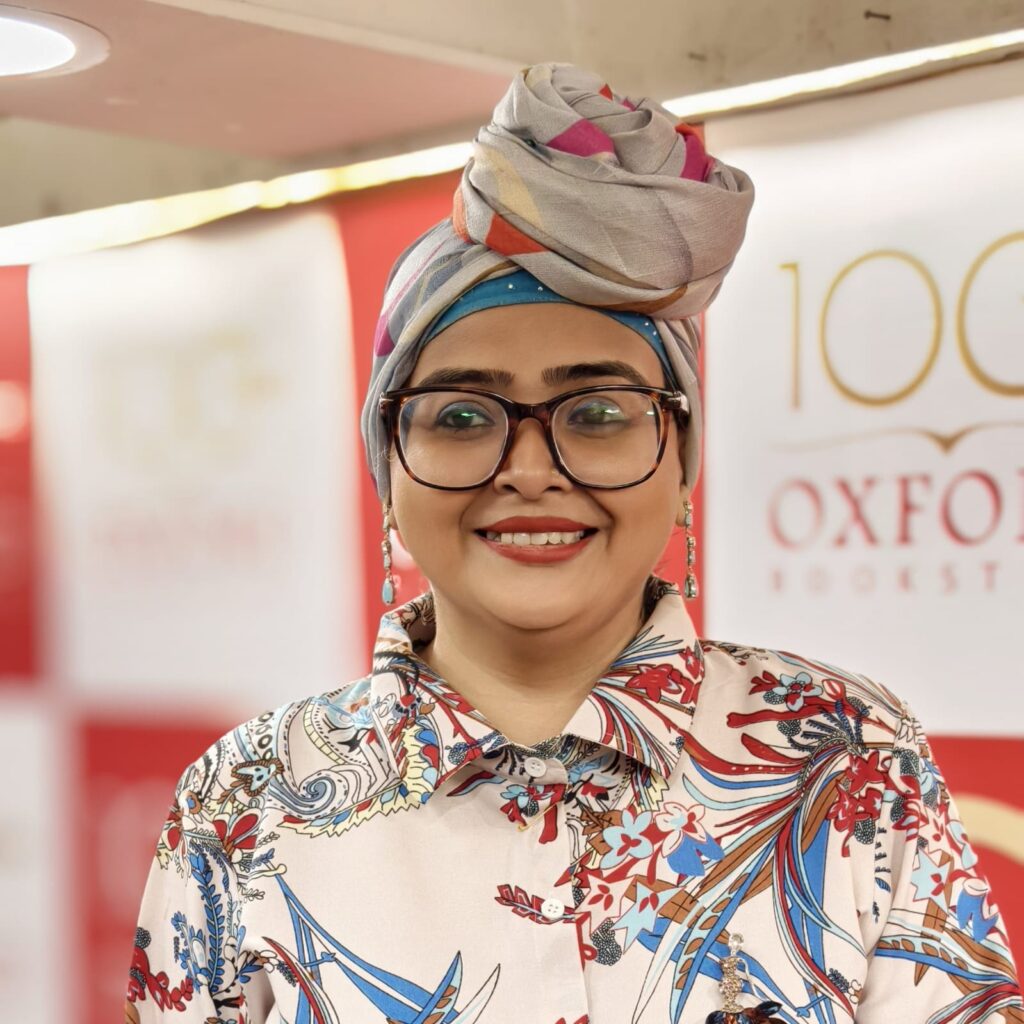
Shagufta Hanaphie
Shagufta lived with her parents and three sisters in a joint family of 17 members in the 100-year-old bungalow-style British-styled house in Kidderpore, South Kolkata.
Her uncle and aunt adopted her. As a little girl, Shagufta was emotional and shy, she hid behind her mother; and never spoke to people outside the family circle. She struggled with illnesses, and due to this could not study well.
“We say bhagwan ka ishara alag hota hain, maybe if a person does not do well in early life, perhaps later in life he will do something different or great.I was a very sick child right from the beginning making me heavily pampered and if I didn’t want to study, they would say don’t put pressure on her. My mom was very strict but others were soft on me. We lived in an extended family, Baarey Papa, Baari Ma used to lavish love on me, to the point that I became lethargic. I had a ligament injury in class 6 which affected the left side of my body. I sometimes even became unconscious.
“When I was 9, I underwent surgical removal of gall bladder; it had 72 stones.This story was reported by newspapers. When I was in class 8, I did not take my exams so I lagged one year. At that time, an angel in the form of my Dad’s friend, Uncle Junaid took the imitative to help me to study saying, “Let us bring back her motivation to study and let me teach her.
“Bedridden, with traction around my neck, my body aching, lying down, he taught me Maths and I started to like the subject. After being bedridden for three months, I returned to school in a robotic dress. My principal called my father and asked him to take me home saying, “You don’t understand, she is going through a mental trauma right now.
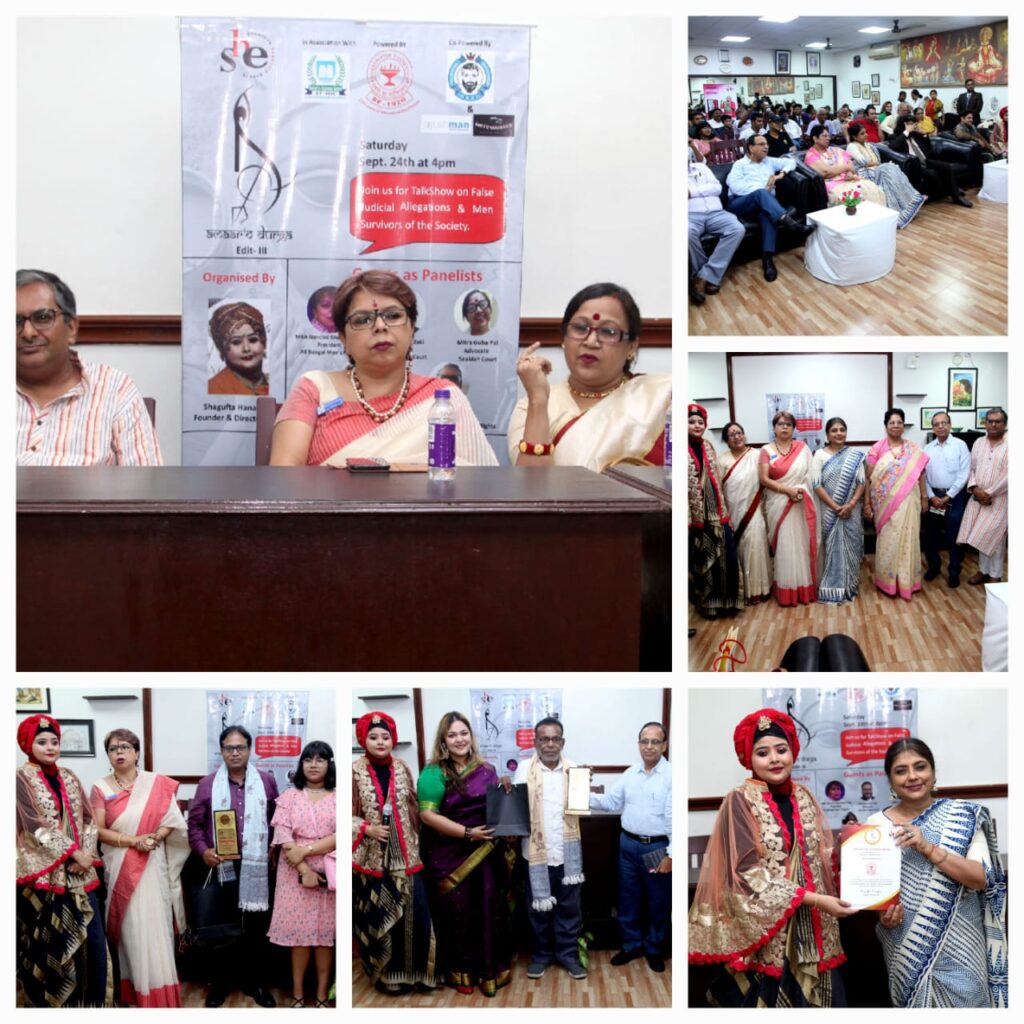
Glimpses of events organised by Shagufta’s NGOs
“I repeated classes, and with mocking classmates around, I changed the school and got an A. I could not believe it and thought the mark sheet got mixed with someone else!
“The talk of marriage exasperated me and decided to go to Ranchi and stay at my Aunt’s home to do college.
“After Baari Ma had a fall, I returned in 2002 and refused to go back to Ranchi. Dropping out of college, one day I attended a workshop where Ruby Bhatia and Michele Pinto came to Kolkata. That was a defining moment in my life because I never knew what the other world was.
“This workshop was a beautiful learning experience where I met these amazing people who told me, “Since you don’t want to study higher, help us, since your English is good.” With them, I learned oratory skills. Earlier, I never spoke to anyone outside, but presently, not only am I doing public speaking but now everyone meets me and I am well known.
“My first salary was Rs. 3200 and I spent more money going by taxi to reach my workplace. My Baari Papa used to say, “Let her travel so at least she will learn to talk and mix with people.” All these were life-learning lessons. It falls into place later on in life.
“After this, Rajiv, a good friend and I launched a new brand called Launchers. I have worked with Rajiv for 17 years as a PR Director in a partnership firm.
“My parents got hold of a very handsome boy, who is my husband now. My husband works the whole day; he is very supportive, most of my photographs are clicked by him, travels with me to all the places, and my parents stand right behind me.
“My life changed in October 2018 when my Baarey Papa was diagnosed with cancer. We spent long hours talking till he passed away in 2019. I was shattered.I felt uprooted and disconnected and took a break from work. It was a break tha my Baari Papa used to encourage me to take.
“In 2020 I did my first event and soon went on to do 5 events. On March 22, 2020, lockdown closed everything. People say lockdown was bad, for me lockdown was a boon. Our NGO called Best Friendz Society was helping people.
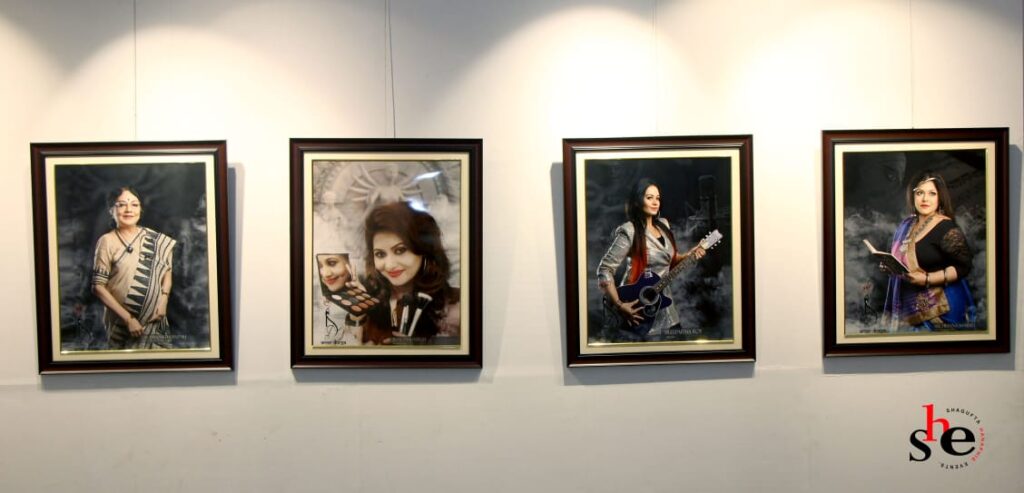
A wall celebrating women from dfference backgrounds in Shagufta’s office
“One day, one of my friends Nisha, a fashion designer, asked me to help people in an area in Kerala during the COVID 19 Pandemic. I was into PR and media. First I wondered how could I reach out to people in Kerala. I told myself: Okay, we will find a way to them even though we are not into this.
“At first, we heard there were four people, turned out to be 40, and finally they turned out to be 400 people stuck in Bengali Para in Ernakulam. While the BSF was providing food in the general area they were not reaching out to the red done. We had to locate the exact place and then Nisha and I arranged for food for 400 people for a month. I felt new energy and joy rising in me. I started gathering people, and communicating with them.
“While people speak up for daily wagers, I started to have a burden for a class of people that are largely ignored such as models who barely get Rs. 2,000 for an assignment which may be all they have for that month, photographers, and even school teachers. I started to post about and for them and personally WhatsApp them telling them if they need help, let me know. I assured them help will reach theirplace, they don’t have to let anyone know about it.
“I got a huge response from many photographers and models.I learned that many people were on the verge of suicide, and sitting at home. I started helping them and listening to their woes. Under the umbrella of Best Friendz Society, we started a campaign called Phone a Friend.
“I am blessed to have amazing clients. I would message PR clients who were on Facebook and tell them, “Sir, I am going to this area to help so-and-so, if you can help me out, it will be a big support to this person. They were responsive and kind, some sent sacs of rice, dal, and many other goods. They told me that they wanted to help but had no idea what to do. Here, many NGOs are misusing funds and are running corruption rings. They told me that they knew could trust me and that I would use their money honestly. They stood behind me while I ran around with their help. This is how our connection happened.
“I organize a philanthropic club, which is a virtual club and I tell our helpers that they don’t have to go around; just help us with money or goods. Those days, I used to get out of the house at 4 a.m. and visit Sundarbans, and other areas during COVID-19 almost 18 times in 2020, and attend to everyone. Sanjay Mondal, a photographer and boat owner told me point blank that he doesn’t want money, only cash for the diesel tu run his boat. He travelled with us. He had three boats. We went to the village where we found their homes submerged under water. We helped the boat owner families.
“We returned from Sundarbans at 11:30 night, reached home by 12:30 night and my mother woke me up at 3:30 a.m. to tell me to catch the vehicle going for another trip for the COVID team. She said, “They are waiting for you. Since you promised, you have to go, whether it is raining or whatever it is, even if you are sick, you have to go.”
“You need parents like that. While we went out so much during COVID, by the blessings of Allah we never got COVID, but people in 5-Star Hotels got COVID. Believe in yourself, believe in your God who has that specific blessing on you, keep doing good to others, and good will return to you and you don’t have to look back, all blessings are there, and people’s prayers are on your life. Just keep doing your work. When the government is doing 98 percent, I am doing my 2 percent.”
On the difficulties they face, she said, “Bengal is a politically disturbed area so to meet the right person is very difficult. In the last five years since 2020, I have opened small centers in every place I have worked with around 20 people or more in each center. We have adopted 23 orphans, senior citizens, teachers, and daily wagers who sum up to over 70 people and every month we send them food and other goods to help them run their daily lives. Nothing is fixed on what we send, but it is enough to ensure them good nourishing food and other commodities so that they can sleep peacefully without going to bed hungry.
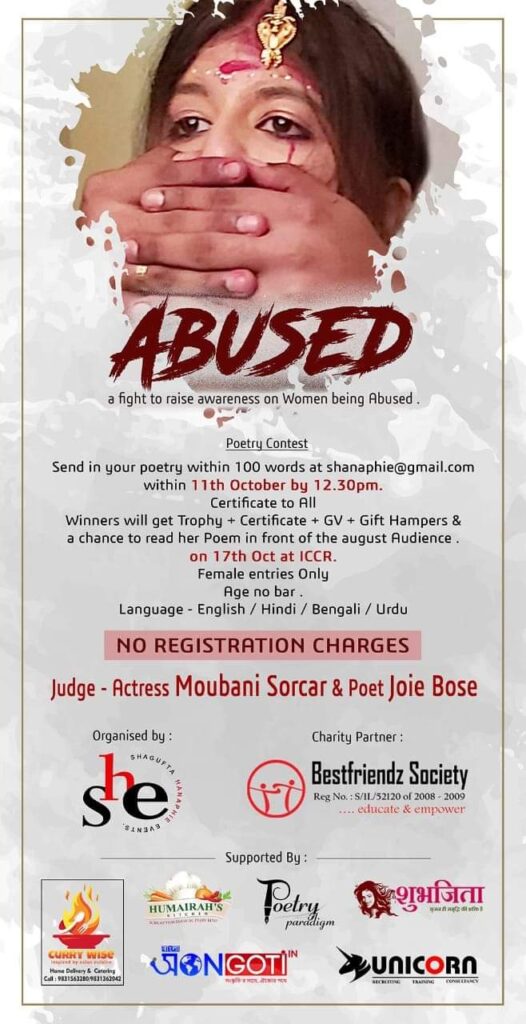
A Poster of the event of Shagufta’s NGO
“In October 2020, the Phone a Friend campaign opened our lives to many people. Each night, we got calls from senior citizens- 65 or 70 years old – or young girls or men, and I listened to and counselled them over the phone. One woman did not even have time to have a cup of coffee and was always serving others suffering mental and physical abuse. Due to this, I launched my new campaign called Abuse Durga, which became Amar Durga, Amar O Durga, with a question mark. I asked the public a lot of questions, such as, “If this is my Durga, who are you to ask me a question whether I should celebrate or not?” Being a Muslim, people found it unusual.
“I felicitated people who had running cases against them for 15-20 years who were not guilty and celebrated 11 people. Last year, we held an exhibition to give table space to NGOs which cannot invest; awarded the LGBT community and single mothers. We will be holding another event for the LGBT community soon.
“My NGO is my charity partner. I did this because I was feeling bad to keep asking people to fund my NGO, so I decided to promote my events, and whatever money I got would go to my NGO so I could help the maximum people with the blessings of the Almighty. I do not want to work to mint money, want to work to make my stand.
“My breakthrough came when an old client called and invited me to his office. He is Rajendra Khandelwal, MD, Dhanwantary. During my meeting, he kept saying, “Very nice, very nice,” I asked him, “Who are you speaking about and he answered, “The event you held, the Teachers Excellence Award, I am going to support you,” and to my amazement, he handed over a cheque. At that moment, I knew I was doing the right thing. He asked me, “Why did you choose this topic, I replied, I am alive because of my teachers. Uncle Junaid who taught me how to hold a pencil and I want to do something in his memory. Without teachers’ investment, I would not be where I am today.”
“I do not work with an experienced group of people because there are a lot of young people looking for work, always take new people and give them scope, If they say, we cannot speak, I tell them you will learn to speak, If they are graphic designers, content writers, etc, I take them on board.
‘While we are a modern family, where I used to wear sleeveless and backless clothes, and my father even took us to Trincas to get us on the dance floor, I got to wearing hijab permanently unexpectedly. On my birthday in 2013 or 2014, my Baari Maa gifted me a hijab. I wore it to my office that day and since then, I have been wearing it. I changed as a person totally after that. While earlier, I was highly strung and emotional, I started to calm down after wearing the hijab believing it was my symbol of strength. My family was cool about my hijab.
“My dream is to meet 10,000 people with their inspiring stories and lift them on all my platforms. I highlight lives through events or writing about them. During the lockdown, I started to write in 2020. While my target is global, I also want to cover the map of West Bengal. I believe everyone can do anything but they just need a spark inside with a belief they can conquer the world, and they end up doing great things. Sometimes, to create that spark, that road is blocked so I just need to push these people and bring that change within them.”
Rita Farhat Mukand is an independent writer and author
source: http://www.awazthevoice.in / Awaz, The Voice / Home> Story / by Rita Farhat Mukund / August 24th, 2024
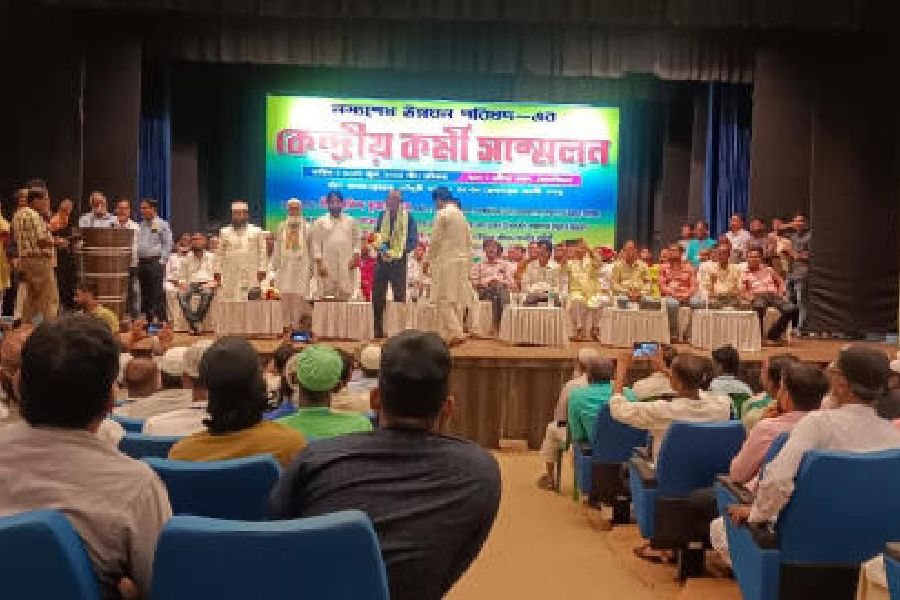
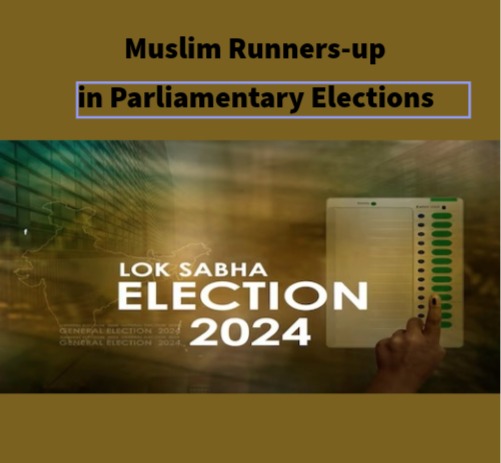
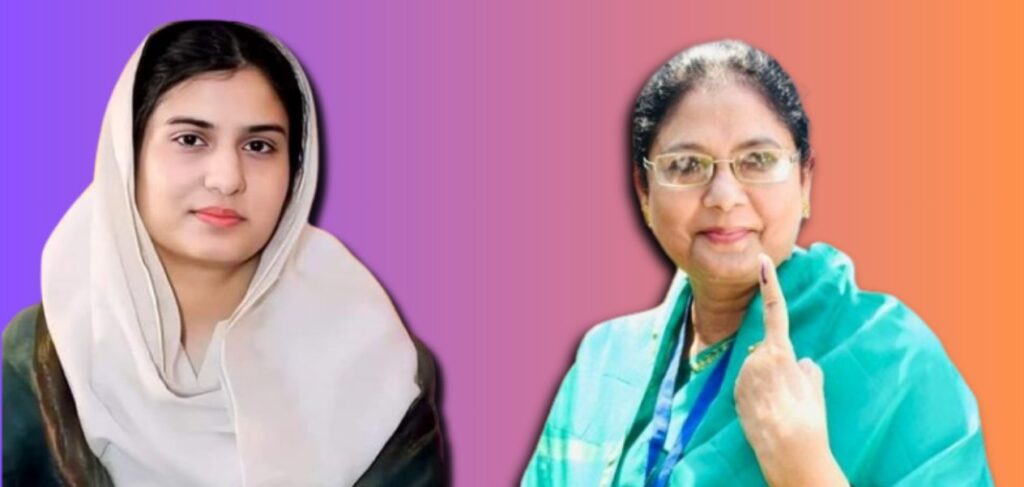
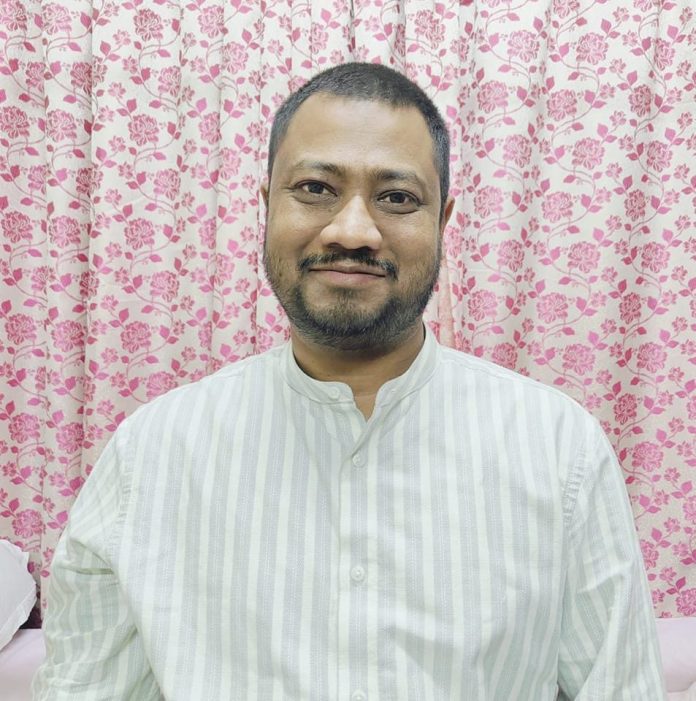
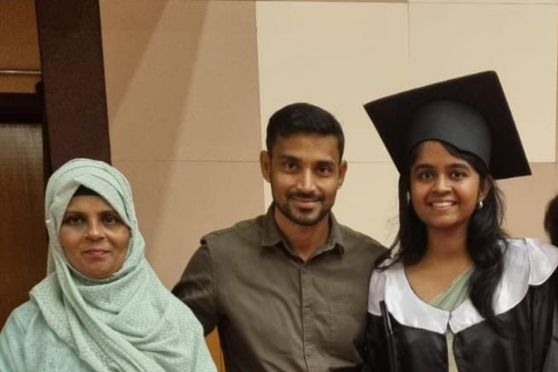
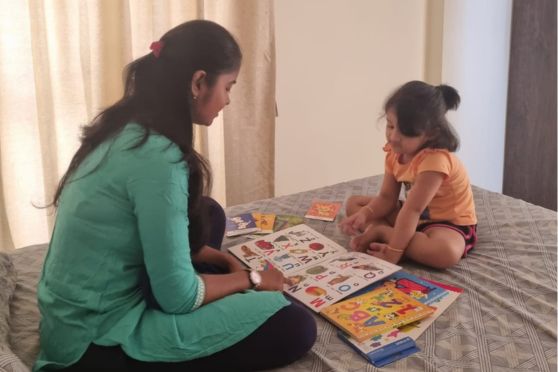
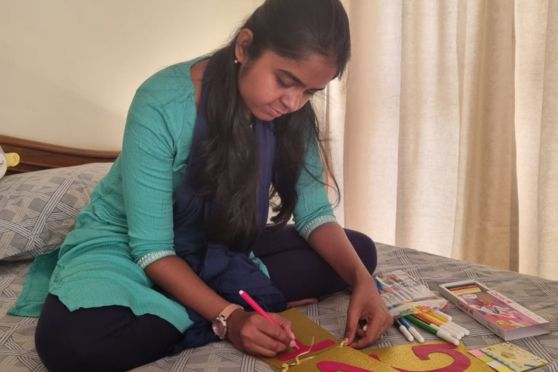
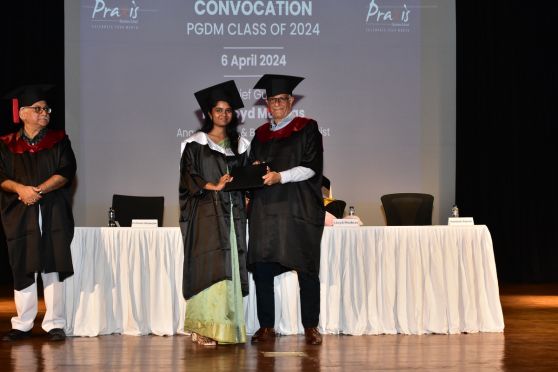
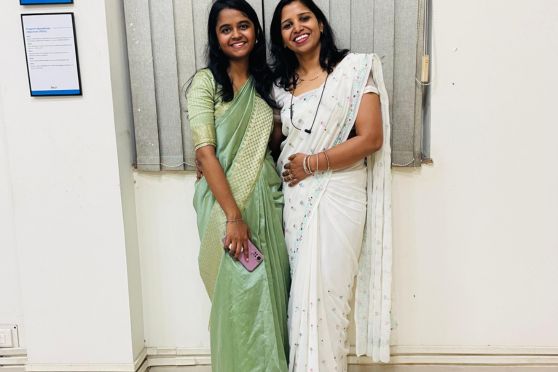
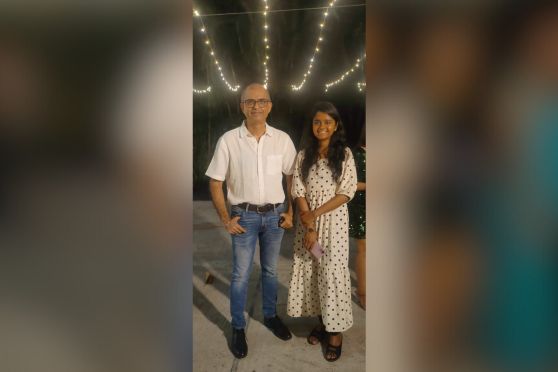
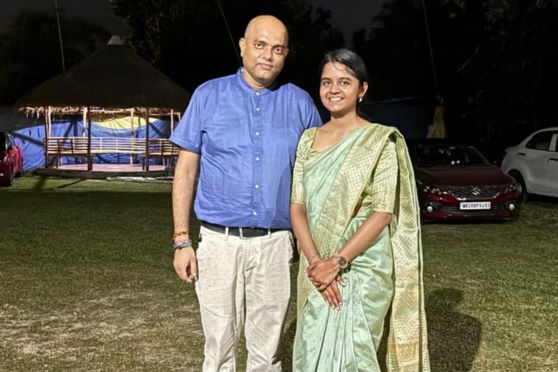
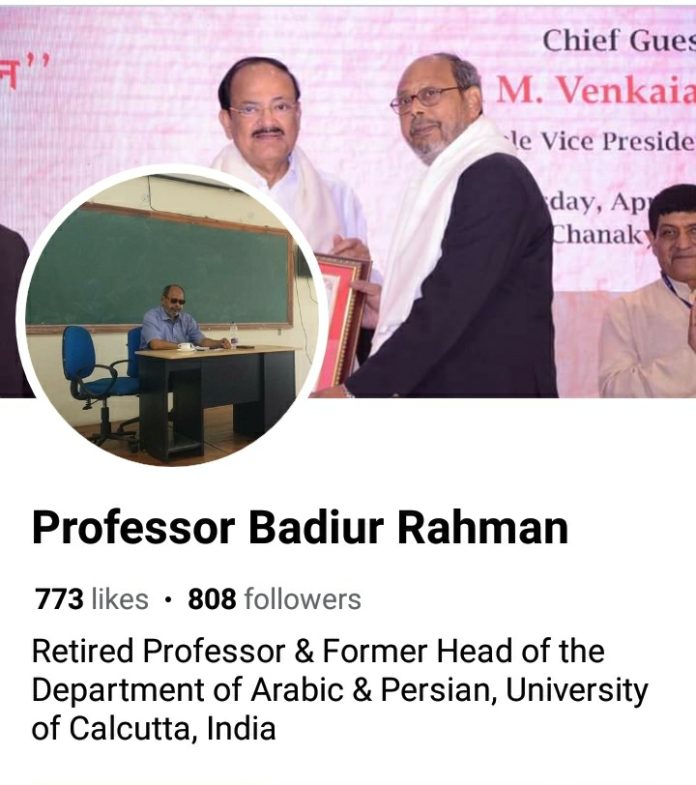
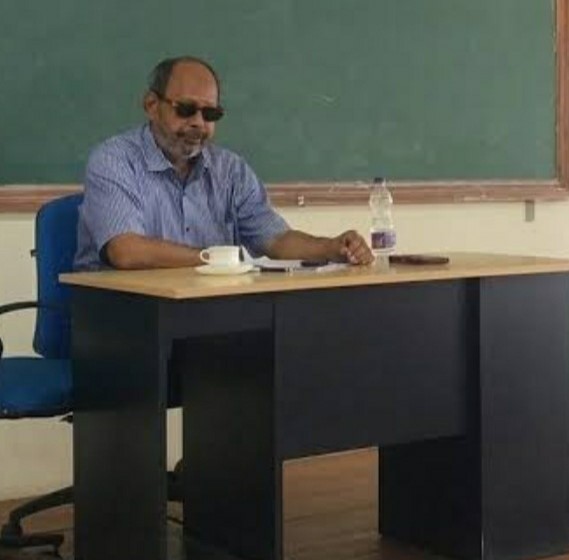
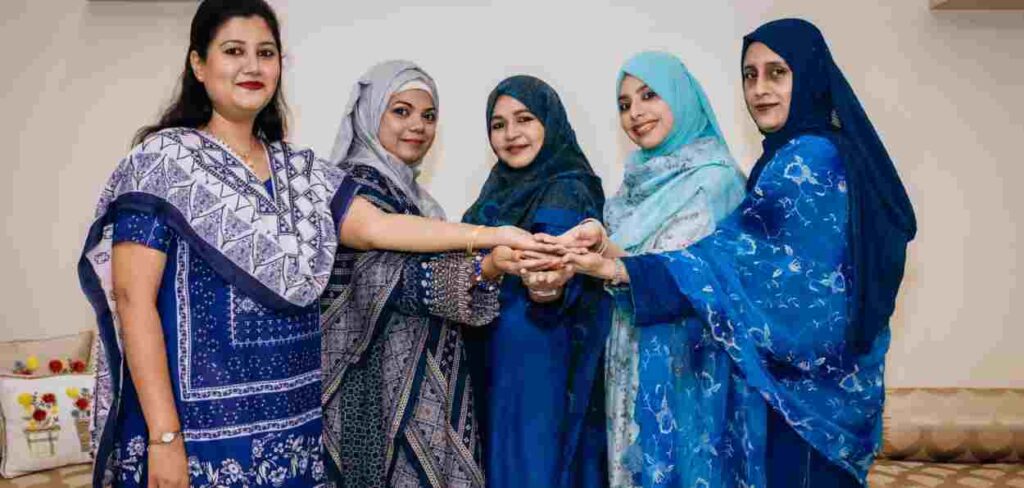
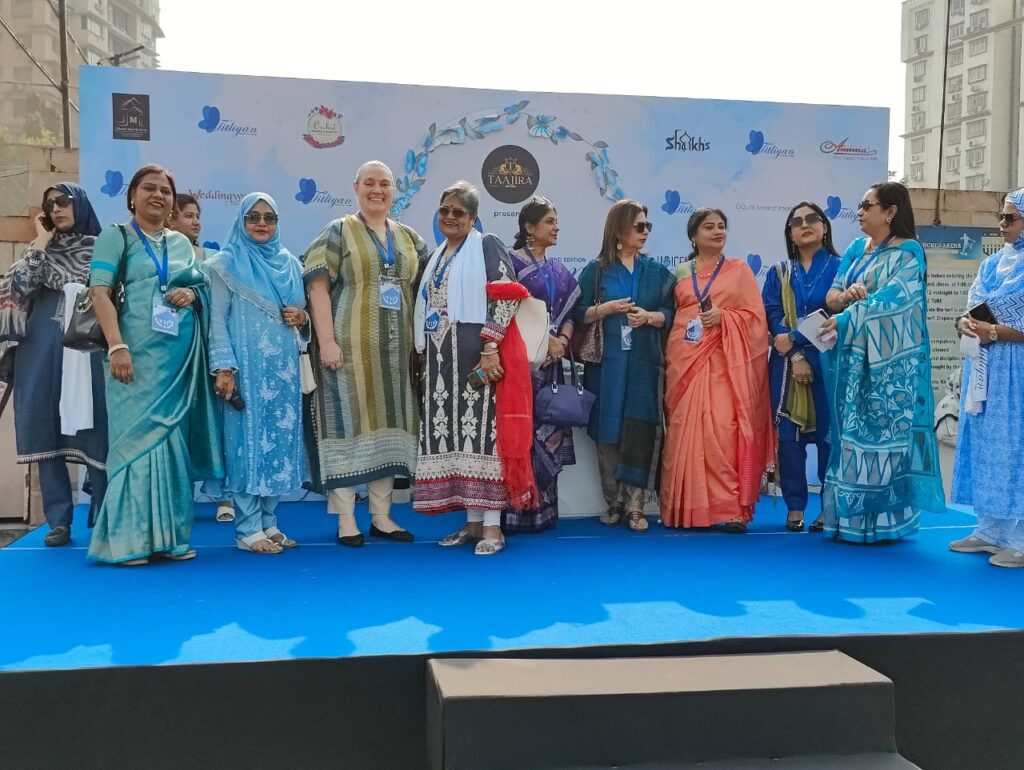
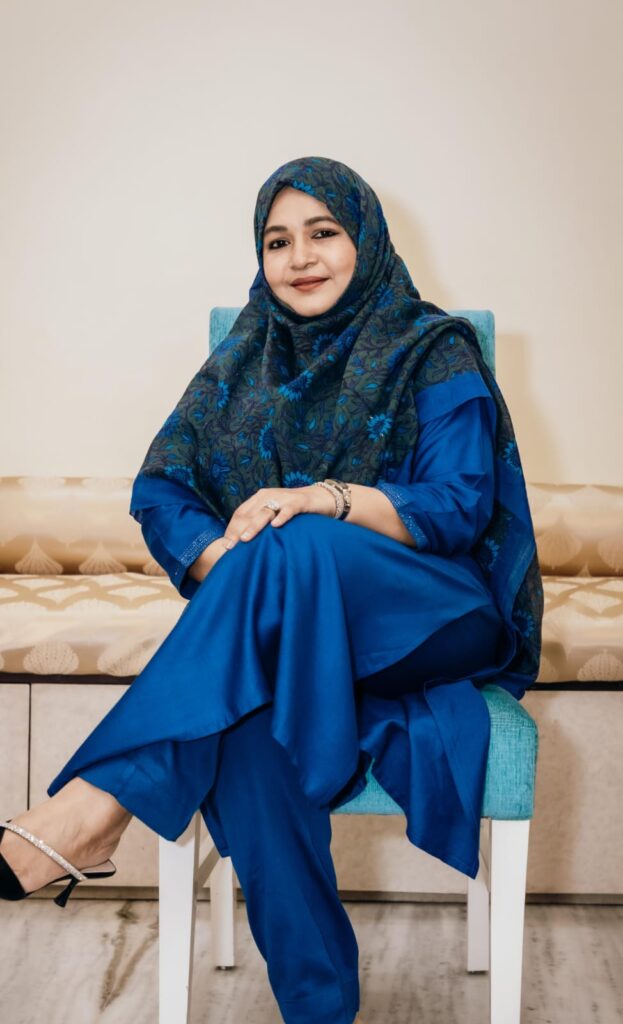
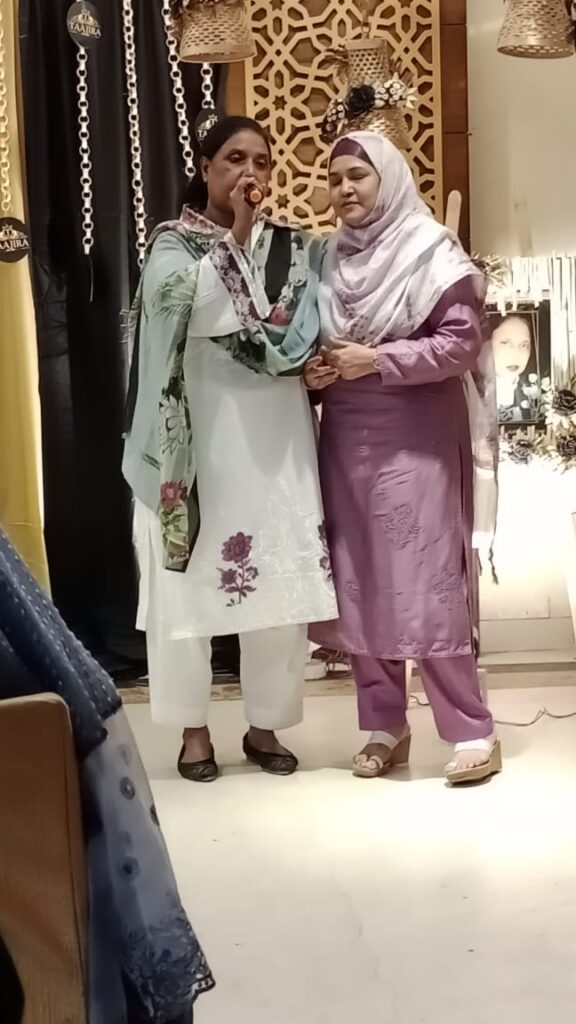
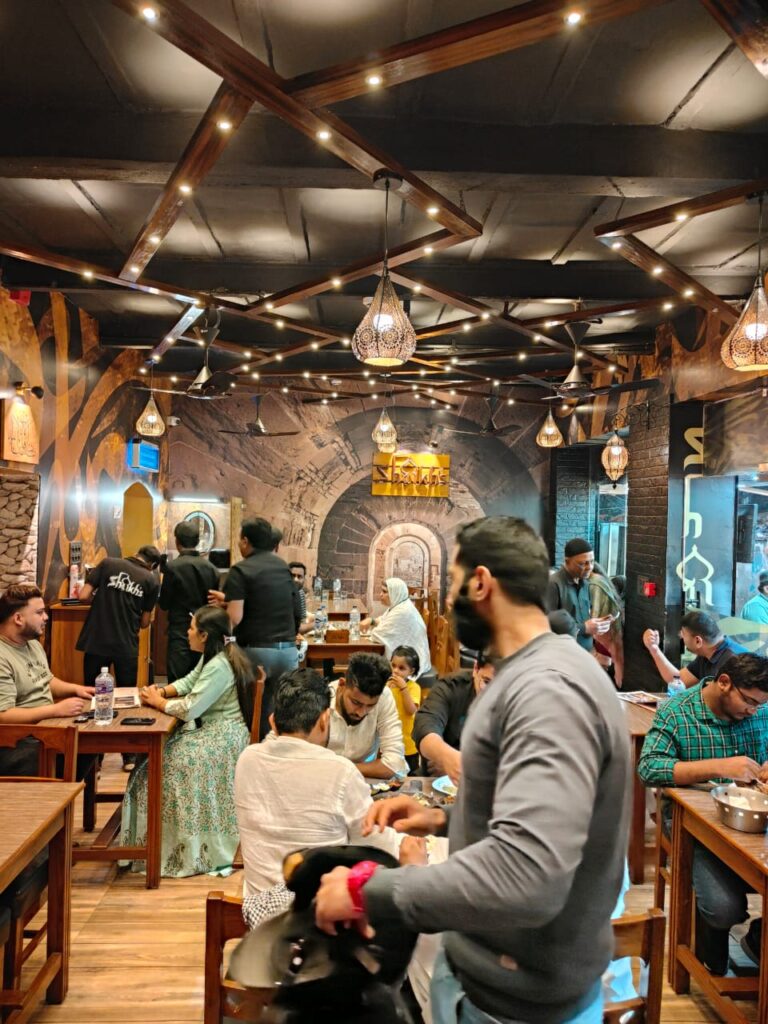
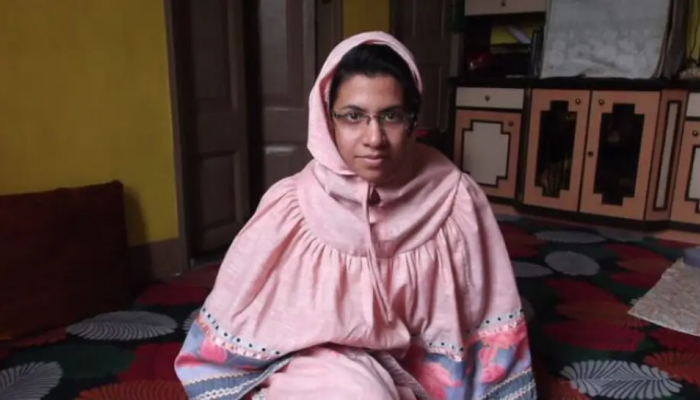)
